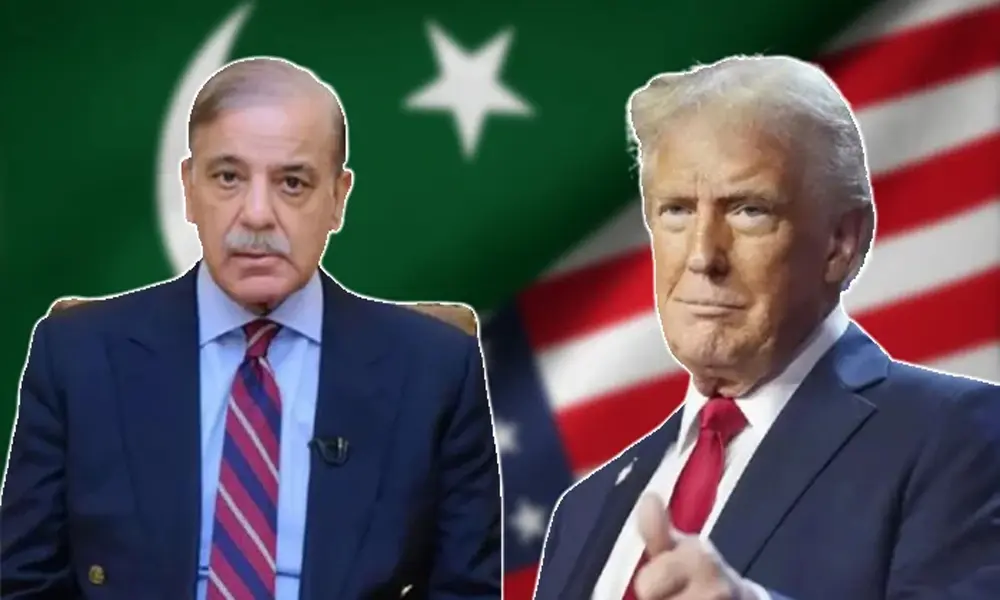Trump Praises Pakistan Leadership Amid India-Pakistan Conflict
Trump praises Pakistan leadership In a pivotal meeting at the White House, U.S. President Donald Trump applauded Pakistan’s leadership while discussing escalating tensions in South Asia with newly elected German Chancellor Friedrich Merz. Their meeting on June 5 marked their first official discussion since Merz’s election on May 6.
Acknowledging Pakistan’s Diplomatic Restraint
Trump directly credited Pakistan for showing strong and stable leadership during the India-Pakistan crisis. “Pakistan has very strong leadership. Some people may not agree with me saying that, but it’s the truth,” he declared, underscoring his personal involvement in diffusing the crisis.
The bilateral conversation focused heavily on regional instability. Trump praised both India and Pakistan for eventually stepping back from the brink of war, but he specifically highlighted Islamabad’s responsible handling of the situation.
Background: Kashmir Attack Triggers Escalation
The conflict reignited after a deadly assault in Indian-Illegally Occupied Jammu and Kashmir (IIOJK) on April 22, which left 26 people dead. India immediately blamed Pakistan, though it offered no solid evidence. Pakistan firmly rejected the accusations and called for an international inquiry to investigate the incident impartially.
India acted quickly and strongly: it suspended the 65-year-old Indus Waters Treaty (IWT), stopped all trade with Pakistan, and shut its border. Pakistan responded to the Indian action by doing the same, including shutting airspace to Indian planes.
Rising Military Tensions
As aggression mounted, both countries began to operate missiles and air strikes. Escalation happened quickly and there were civilian casualties on both sides, with damage to infrastructure on both sides. Trump noted the world was “very close to witnessing a full-scale war between two nuclear powers.”
On May 7, India launched strikes in multiple cities in Pakistan and regions in AJK (Azad Jammu and Kashmir). Pakistan responded with vigor. Pakistan shot down Indian Rafale jets and neutralized waves of Israeli designed and made drones sent to strike at sites across Pakistan by New Delhi.
On May 10, India was striking Pakistani air bases. In response, on May 10, Pakistan launched Operation Bunyanum Marsoos, effectively striking Indian military targets. The mutually destructive attacks were bringing South Asia to the brink of cataclysmic war.
Trump Intervenes to Halt War
Recognizing the danger of further escalation, Trump stepped in as a mediator. He engaged in urgent conversations with top leadership from both countries. “I spoke with very capable individuals on each side,” Trump revealed. “I told them we won’t discuss trade if nuclear threats are on the table.”
Through his intervention and coordinated diplomacy, Trump brokered a ceasefire on May 10. Both nations confirmed the truce through official statements issued by their foreign ministries.
Praise from Islamabad, Silence from Delhi
After the cessation of hostilities, Pakistan made no attempt to disguise its attribution of credit to Trump, China, and various Gulf states for mediating the de-escalation. Islamabad stressed the importance of international diplomacy in staving off a war.
Conversely, Indian officials minimized any outside influence, maintaining that the de-escalation was caused by Indian and Pakistani diplomats’ bilateral talks.
Trump, however, remained vocal about his contribution. “I got that war stopped. Hopefully, it stays that way,” he said confidently. He also acknowledged India’s leadership, stating, “The leader of India, a great guy, visited recently. We had very positive trade talks.”
A Message for Peace
Trump’ remarks underscored the argument for diplomacy—proactive diplomacy can mitigate violence. His praise for Pakistan’s leadership was a recognition of restraint, but it was also a diplomatic message considering the larger context involving cooperation and peace in the regional theater. Once the dust settles, even if progress is made, both countries will have to grapple with the deeper issues at play. Nevertheless, Trump’s yielding interim diplomatic response in this incident represents a key moment for South Asia, particularly the geopolitics space.
